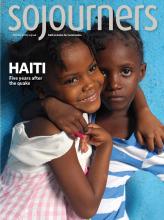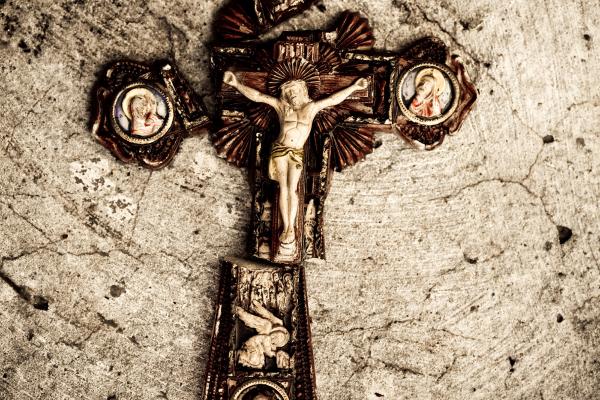SINCE WAR BROKE out in the Central African Republic in March 2013, the international community has referred to it as a “religious conflict.” When the media cover the violence at all, they usually frame it as a story of Muslims against Christians. However, to call this conflict a war of religion is simplistic at best and a smokescreen for the real causes at worst.
That is the message that Central African Republic (CAR) faith leaders—Catholic, evangelical, and Muslim—have worked tirelessly to spread, at great personal cost. Imam Omar Kobine Layama, president of the Central African Islamic Community, Catholic Archbishop Dieudonné Nzapalainga of Bangui, and Rev. Nicolas Guérékoyame-Gbangou, president of the Evangelical Alliance of the Central African Republic, have been at the forefront of their country’s peace and reconciliation movement.
During a November 2014 interview in Washington, D.C., Archbishop Nzapalainga adamantly refuted the “religious war” narrative.
“Our role is to continually remind our religious believers ... that those people who want to kill people or rape people ... are in contradiction with their faith,” he told Sojourners. “We, for example, have never been telling our believers that they should go out and kill Muslims, and the imam has never been telling his followers that they should go out and kill Christians.”
Read the Full Article

